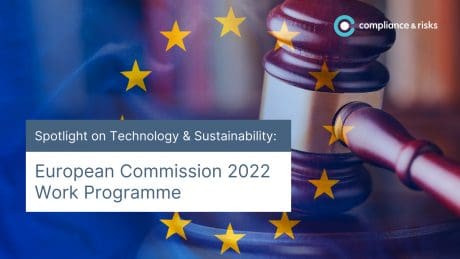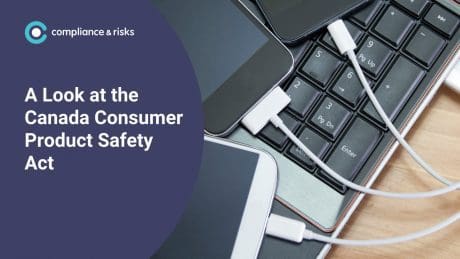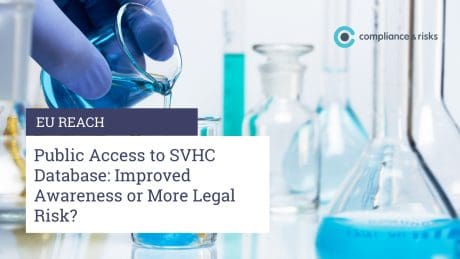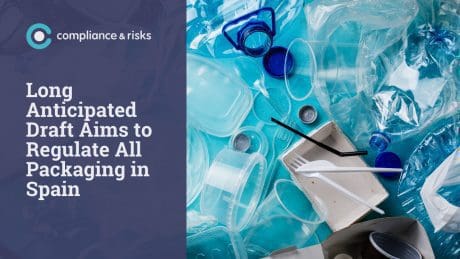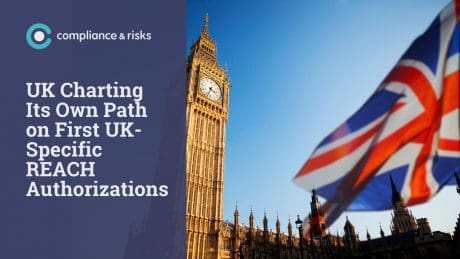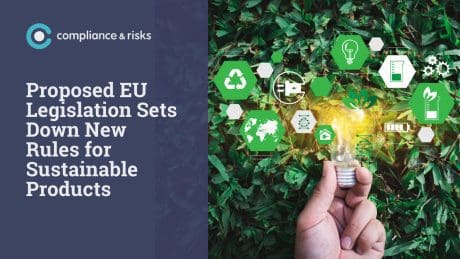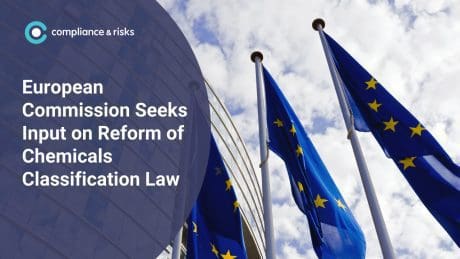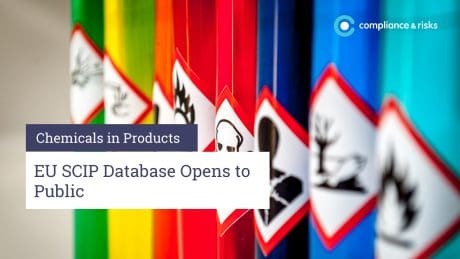
COVID-19 Regulatory Developments: Update 3
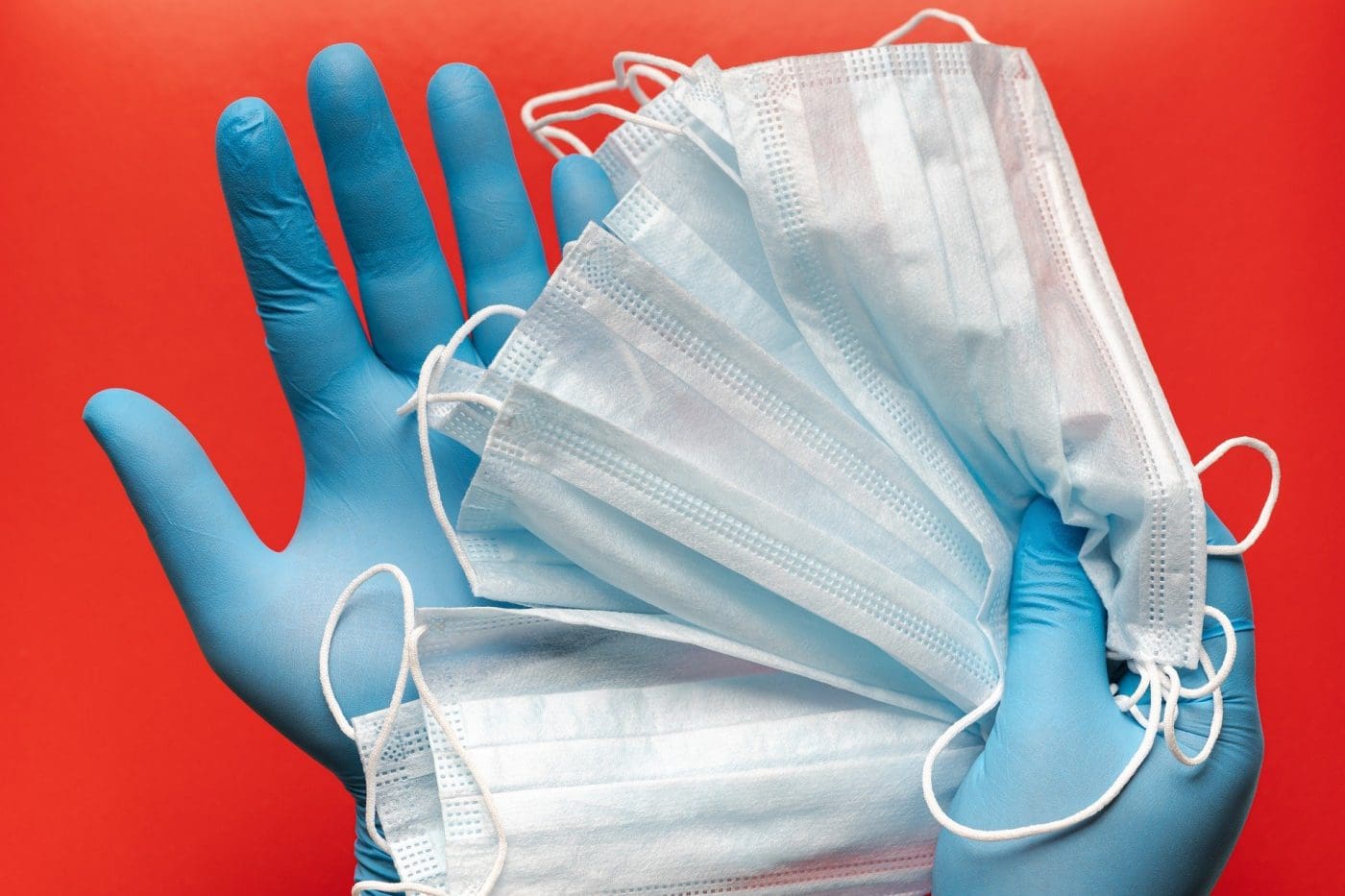
The outbreak of the COVID-19 pandemic has resulted in countries adapting their regulatory landscape to accommodate and mitigate the unprecedented disruptions to companies and individuals. Through regular updates, Compliance & Risks will closely monitor the situation and inform our clients of the latest global regulatory developments in relation to COVID-19 relevant to their topics, along with updates on items which may be of interest outside our topics.
The first two weeks of April have been marked by the adoption of new extraordinary measures which increasingly affect our core regulatory areas. The most notable developments undoubtedly relate to the suspension or deferral of custom duties and the introduction of environmental enforcement discretion policy together with extended statutory time-limits applicable to permits, reporting and certification obligations. This regulatory update is a follow-on to our second COVID-19 update and covers the period from 3 to 10 April 2020.
Chemicals in Products:
Due to the ongoing COVID-19 pandemic and the implications this may have for businesses, the European Chemical Agency (ECHA) has postponed the start of the completeness checks of REACH chemical safety reports to October 2020. The remaining changes to the completeness check will take effect on submissions as of 1 May 2020, as previously communicated. For further details, please consult the ECHA’s press release.
With respect to chemical licensing, Brazilian Ordinance No. 14327481/2020 extended from 12 March to 12 June 2020 the renewal deadline for chemicals operating licences which have reached their maturity term.
Impact on Certification and Product Safety:
In Argentina, the under-secretariat for Trade Policy and Management of the Ministry of Productive Development has decided to accept, in an exceptional manner, the electronic submission of Certificates of Origin issued within the framework of Preferential Agreement signed by Argentina. The presentation of the originals to the Custom authority is therefore no longer required until further notice. Further information is available here.
Wireless and Telecommunications:
Ente Nacional de Comunicaciones (ENACOM), the National Entity for Communications in Argentina, published a Resolution (Resolución 326/2020) introducing provisional measures to extend, for a period of sixty calendar days, the period of validity of permits, authorizations, registrations and licenses that expire between 16 March 2020 and 16 May 2020.
The Institute of Telecommunication (INDOTEL) of the Dominican Republic published a Resolution with guidelines regarding the measures to be taken by the providers of public telecommunications services during the outbreak of COVID-19. The Regulatory Guidelines provide for the suspension of all statutory deadlines and administrative procedures during the duration of the state of emergency. This includes deadlines resulting from procedures and actions carried out by INDOTEL in the exercise of its powers. The suspension should remain in force for three days following the removal of the national state of emergency.
EH&S: Environment:
The Ministry of Environment of Brazil published a Communique providing temporary guidelines to help companies comply with their environmental licensing obligations during the pandemic. The document encourages businesses to ensure as far as possible compliance with their environmental obligations, especially those related to the maintenance of environmental quality, soil stability and treatment of liquid or gaseous effluents and hazardous waste. Where compliance is hampered as a result of COVID-19, companies shall implement mitigation measures to reduce the magnitude and duration of adverse impacts. A report documenting the causes of non-compliance, its relationship with COVID-19 and the nature of mitigation measures should also be submitted to the Institute of Environmental and Renewable Natural Resources (IBAMA). This guideline retroactively applies to 12 March 2020.
IBAMA issued a Normative Instruction (NI. 12/2020) extending until 29 June 2020 the regular deadline for the delivery of the Annual Report on Potentially Polluting Activities and Users of Environmental Resources (RAPP). The extension refers exclusively to the RAPP prepared in 2020 for the previous year 2019.
Following the outbreak of the virus, the Flemish Government adopted a series of temporary measures under the Environmental Policy Decree to extend the time-limit available to the administration to make a decision on license applications for single environmental permits. In a decision dated of 23 March 2020, the Government extended for sixty days the time-limit to issue decisions on applications submitted under the ordinary procedure. The decision deadline for applications submitted under the simplified procedure is also extended by 30 days. This temporary measure applies to license applications submitted before the entry into force of the decision (i.e. 24 March 2020).
In a letter to the Dutch Parliament, the Minister of Environment and Housing announced the deferral of the entry into force of the Environmental Act, initially scheduled to become effective on 1 January 2021.
In France, Emergency Law No. 2020-290 officially declared the state of National Health Emergency until 24 May 2020. The French Government subsequently adopted several Ordinances to adapt its administrative and judicial procedures. Ordinance No. 2020-306 suspends for the duration of the state of emergency (plus one month) all statutory time-limits to carry out legal actions, registrations, declarations, notifications, publications, inspections and other enforceable actions prescribed by the law. This provision only applies to measures and actions that have expired or expire between 12 March 2020 and the month following the expiry of the state of health emergency (i.e. 24 June 2020). Certain controls are maintained for reasons of national security, public health and safety and the protection of the environment. Those controls are listed under Article 1 of Decree No. 2020-383 and concern decisions and notices taken with regard to Classified Installations, pipelines and infrastructures for transporting dangerous goods, holders of pressure equipment, and producers or users of dangerous chemicals. Those time-limits and compliance deadlines that continue to run throughout the duration of state of emergency include inter alia:
- Compliance with administration authorization, registration, declaration and notification obligations
- Formal notices and administrative sanctions
- Compliance with environmental authorizations delivered in accordance with Article L 181-1, Environment Code
- Compliance with infringement notices and administration sanctions relating to the control of chemical substances and mixtures in accordance with Articles L 521-17 and L 521-18 of the Environmental Code
- Compliance with Ministerial Orders defining the conditions of commissioning and periodic inspections of pressure equipment in accordance with Article R557-14-4 et seq, of the Environment Code.
In Turkey, the General Directorate of Environmental Management has also announced the extension of the procedural deadlines referred to under Article 15 of the Environmental Management Regulations 2015. Any business subject to extended producer responsibility obligations within Turkey must now report to the Ministry by 31 May 2020.
EH&S: Occupational Health and Safety:
In the United States, the Department of Labor’s Occupational Safety and Health Administration (OSHA) has issued interim enforcement guidance to help combat supply shortages of disposable N95 filtering face piece respirators (N95 FFRs). The action marks the department’s latest step to ensure the availability of respirators and follows President Trump’s Memorandum on Making General Use Respirators Available. This guidance applies to all workers exposed to respiratory hazards including healthcare professionals. In a first memorandum, OSHA provides guidance on enforcing Respiratory Protection Standard 29 CFR § 1910.134, and other health standards requiring respiratory protection, with regard to supply shortages of disposable N95 FFRs. In a second enforcement memorandum, the department provides additional guidance for use of respiratory equipment certified in accordance with non-US standards. During the period of shortage, the federal government advises that employers may consider using respirators and filters certified under the following standards of other countries or jurisdictions:
- Australia: AS/NZS 1716:2012
- Brazil: ABNT/NBR 13694:1996; ABNT/NBR 13697:1996; and ABNT/NBR 13698:2011
- People’s Republic of China: GB 2626-2006; and GB 2626-2019
- European Union: EN 140-1999; EN 143-2000; and EN 149-2001
- Japan: JMHLW-2000
- Republic of Korea: KMOEL-2014-46; and KMOEL-2017-64
- Mexico: NOM-116-2009
This memorandum remains in force until further notice.
Impact on Data Protection:
Belgium’s Data protection Authority issued a news update with privacy guidelines on the principles and conditions to be observed in the processing of personal data, especially with health applications during the COVID-19 crisis. For more information on this, please consult the COVID-19 webpage of the Belgium DPA.
Energy Efficiency:
The Chinese Standardization Administration (SAC) enacted a Notice postponing the implementation of 13 standards due to the effects of COVID-19. 8 Standards have had their entry into force date moved from 1 May 2020 to 1 November 2020. These include Standards on minimum allowable values of energy efficiency and energy efficiency grades for the following units:
- Unitary air conditioners; LED products for indoor lighting (GB 19576-2019)
- LED products for indoor lighting (GB 30255-2019)
- LED luminaires for road and tunnel lighting (GB 37478-2019)
- Ducted air conditioners (GB 37479-2019)
- Low ambient temperature air source heat pumps (water chiller) packages (GB 37480-2019)
- Rotary aerator in wastewater treatment (GB 37483-2019)
- Submersible mixers of wastewater (GB 37485-2019)
The date of entry into force of 5 additional energy efficiency standards for faucets, squatting pans and smart water closets has been moved to 1 January 2021.
Breaking Developments for Medical Supplies:
On 3 April 2020, the Minister of Health of Romania approved the temporary suspension of the distribution, outside its national territory, of biocidal products covered by Regulation (EU) 528/2012 which are used to prevent and mitigate the spread of the disease associated with COVID-19. The official text of this measure can be accessed here.
The US Food and Drug Administration (FDA) has released a temporary guidance to relax certain restrictions on the manufacture of hand sanitizers. In this respect, the FDA has temporarily agreed not to enforce actions against firms preparing alcohol-based hand sanitizers as long as their preparation satisfy the criteria prescribed by the Temporary Policy for the Preparation of Certain Alcohol-based Sanitizers During COVID-19. In this respect, the FDA also provided useful instruction regarding the submission of entry information for PPE and certain other devices imported in the United States.
As in many other countries, Indonesia has moved to ban the export of several products deemed essential to fighting the ongoing COVID-19 pandemic. Through Regulation No. 23/2020 a temporary ban has been placed on the export of antiseptics and PPE masks as well as their raw materials. These restrictions shall expire at the end of June 2020.
Measures to fight the crisis prompted Canada to once again adapt its legislative framework to expedite the importation of medical supplies. Canada has published the Interim Order Respecting the Importation and Sale of Medical Devices for Use in Relation to COVID-19. The Interim Order, published in the Gazette on 28 March 2020, provides an expedited authorization pathway for medical devices used in the diagnosis, treatment, mitigation, or prevention of COVID-19. An application for the authorization of importation must still be submitted to the Minister of Health. The Interim Order allows the Minister to use discretion in the level of evidence required to demonstrate the safety and effectiveness of the devices through this process to meet an urgent public health need. Please note that authorized devices would still be subject to labeling, incident reporting, reporting of a voluntary recall, and distribution-related record-keeping requirements.
In an information notice to health product manufacturers and distributors, Health Canada also announced it would implement the following:
- Interim measures to facilitate expedited access to hand sanitizers, disinfectants and personal protective equipment to address product shortages
- Provide up to date lists of approved hand sanitizers and disinfectants approved for use against COVID-19
- Provide information on Health Canada’s quality requirements to ensure that the alcohol used in the preparation and distribution of hand sanitizers is safe
For further information please consult the announcement.
As discussed in our previous regulatory update, a series of 11 European standards for medical supplies have been made freely available by the European Union Institutions. In addition to these, the EU Commission has developed new guidance to help clarify the legal framework and certification procedures applicable to PPE, hydro-alcohol gels and 3D products for medical use. On 3 April 2020, the Commission decided to approve requests from Member States to waive customs duties on the import of medical supplies and PPE from non-EU countries and developed guidance to support uniform implementation of the Union Customs Code during the crisis. For further information, please consult the Commission decision and guidance available here.
The flow of EU legislation in relation to COVID-19 is particularly significant. All legislative and regulatory developments can be tracked here. A webpage has been set up to help follow and synthesize the EU response to COVID-19.
